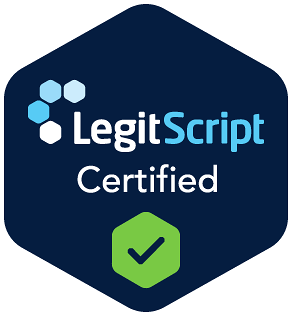Gambling Rehab Near Me: Personalized Care for Problem Gambling
Gambling may start out as innocent fun, a quick wager between friends or a trip to a casino for a special occasion, but it can spiral out of control and require evidence-based behavioral health treatment devoted to problem gambling recovery.
Grounded in science, gambling addiction treatment works to restore financial stability, emotional balance, and mental health through partial care, intensive outpatient, and standard outpatient programs.
Schedules wrap around jobs and family life, while therapies such as CBT, DBT, and motivational interviewing target the roots of compulsive betting. This blend of clinical rigor and everyday practicality helps gamblers reclaim control without dismantling daily routines.
Key Points
- Gambling disorder, or gambling addiction, is a persistent and recurring pattern of gambling that causes distress
- Compulsive gambling activates the same dopamine-rich reward pathways triggered by opioid or stimulant use
- Warning signs include hiding bank statements, escalating wagers, borrowing money to pay debts, and mood swings associated with wins or losses.
Understanding Gambling Addiction
The DSM-5 defines gambling disorder as a persistent, recurrent pattern of wagering that causes significant impairment or distress. [1]
Diagnostic criteria outline behaviors in a gambling problem that parallel substance use disorders: an
escalating need to bet larger sums (tolerance), irritability when cutting back (withdrawal-like agitation), and repeated, futile attempts to quit. [2]
Chasing losses—continuing to gamble to recover previous losses—further illustrates impaired control.
Neuroimaging studies show that compulsive gambling activates the same dopamine-rich reward pathways triggered by opioid or stimulant use, reinforcing a cycle of anticipation and reward.
Approximately one percent of U.S. adults meet the full criteria of a gambling addiction, yet subclinical “problem gambling” affects a much wider population, underscoring the importance of early intervention and comprehensive behavioral health screening. [3]
Common Warning Signs
- Escalating wagers and “chasing” losses—riskier bets and gambling behavior after losing sessions to recoup money [4]
- Hiding bank statements, credit card bills, or betting apps from loved ones
- Mood swings tied to wins or losses, including irritability, anxiety, or euphoria
- Borrowing money or selling possessions to finance bets
- Neglecting work, school, or household responsibilities due to preoccupation with gambling
The Impact of Problem Gambling
Gambling addiction can impact multiple areas of an individual’s life, from financial and legal troubles to mental health struggles.
Financial & Legal Fallout
Savings vanish quickly when wagers spiral out of control, and high-interest credit fills the gap until limits max out.
Missed payments invite late fees and loan defaults, while strained accounts push some gamblers toward cash advances, payday loans, or even theft to fund the next bet.
Civil lawsuits, criminal charges, and sudden job loss often follow—turning a private habit into a full-blown financial and legal crisis.
Mental Health & Co-Occurring Conditions
Problem gambling rarely travels alone. [5]
Depression and generalized anxiety intensify as losses mount, sleep patterns fracture, and relationships fray.
Many individuals turn to alcohol or other drugs in an attempt to numb guilt and stress, deepening the cycle of dependency.
Near-misses on big wins deliver momentary dopamine rushes that fade into hopelessness, making integrated dual diagnosis mental health and addiction treatment essential for lasting recovery.
Take the first step towards recovery.
Our representatives are standing by to help you start healing today.
Evidence-Based Treatment for Gambling Addiction
- Cognitive Behavioral Therapy (CBT) — Delivered in one-to-one sessions, CBT helps clients identify distorted beliefs about odds and risk, then replace them with realistic thinking patterns that reduce the impulse to wager.
- Dialectical Behavior Therapy (DBT) — Structured skills groups teach distress-tolerance, emotion-regulation, and mindfulness techniques that interrupt urges before they progress to a bet.
- Motivational Interviewing (MI) — Brief, goal-focused conversations at intake and throughout care strengthen internal motivation, resolve ambivalence, and keep progress on track.
When depression, anxiety, or other mood concerns enter the mix, clinicians can add medication management, allowing biological and behavioral care to progress side by side.
Levels of Care for Gambling Rehab
Outpatient treatment options for gambling may include:
- Intensive Outpatient (IOP) – This format balances employment or school with recovery, offering CBT sessions, DBT skills groups, and financial recovery workshops after typical business hours, allowing progress to continue without disrupting career or family responsibilities.
- Outpatient Program (OP) – Usually one to two therapy visits each week aimed squarely at relapse prevention. One-on-one counseling keeps progress on course, peer groups exchange practical strategies, and family meetings maintain open communication. This lighter level of care preserves accountability and refines coping skills long after the sharpest urges have eased.
Building a Personalized Treatment Plan
When addressing a gambling problem, the initial step is an evaluation to gauge severity. This involves a clinician reviewing financial impact, intensity of cravings, and any co-occurring mental health concerns the individual may have. Once the evaluation is complete, a treatment plan can be put in place that is tailored to the individual’s needs. Treatment plans typically include measurable milestones – clear objectives to track reduction in betting frequency, debt repayment progress, and emotional regulation benchmarks.
Rebuilding trust with loved ones is done through structured sessions to repair communication, establish healthy financial boundaries, and educate loved ones about relapse warning signs.
Some treatment programs may also offer activities like yoga and art therapy to help with the healing process. These holistic therapies can be beneficial in calming the mind and body, reducing the desire to fall back into habits, and promoting overall well-being.
During formal treatment, a plan is put in place to ensure that after formal treatment concludes, individuals have the support they need going forward. This includes setting them up with a mentor who’s been through the same struggles, as well as connecting them with support groups like Gamblers Anonymous.
Paying for Gambling Addiction Treatment
Financial worries ease once coverage details are clear. Many out-of-network PPO plans repay most treatment costs after the deductible, leaving a smaller balance. That balance can be broken into monthly payments, and sliding-scale rates keep the initial bill manageable. People who meet income or disability guidelines may also qualify for Medicaid or state grants that fund gambling-addiction care.
Coverage details—session caps, copays, and pre-authorization rules—vary from one insurer to the next, so a thorough benefits check is vital before enrollment. The Garden’s admissions specialists handle that legwork, confirming deductibles, arranging single-case agreements when necessary, and outlining any out-of-pocket costs to ensure financial logistics never delay treatment.
Frequently Asked Questions About Gambling Rehab Near Me
How does outpatient gambling rehab work?
Outpatient gambling treatment allows individuals to attend scheduled therapy sessions such as CBT, DBT skills groups, and financial counseling workshops while maintaining work, school, or caregiving commitments. Clinical intensity adjusts over time, moving from multiple weekly visits to maintenance check-ins once relapse prevention skills are firmly in place.
Does insurance cover gambling addiction?
Most commercial health plans classify gambling disorder as a behavioral health condition, making medically necessary treatment eligible for coverage. Benefits, deductible levels, and prior authorization rules vary by carrier, so verification is essential before admission.
What evidence-based therapies help compulsive gambling?
Cognitive Behavioral Therapy targets distorted beliefs about odds and risk, Dialectical Behavior Therapy builds distress-tolerance skills, and Motivational Interviewing enhances commitment to change. When combined, these interventions significantly reduce gambling frequency and financial harm. [6]
Can loved ones be involved in treatment?
Family therapy sessions educate relatives about the nature of gambling disorder, establish transparent financial boundaries, and promote supportive communication strategies that lower relapse risk.
What support exists after the program ends?
Each graduate leaves with a straightforward aftercare plan. It sets up regular alumni check-ins, pairs the individual with a peer mentor who has walked the same path, and points to nearby Gamblers Anonymous meetings (and online options) for extra support. These touchpoints keep encouragement and accountability alive long after formal treatment ends.
Sources
[1]Substance Abuse and Mental Health Services Administration (US). (n.d.). Table 3.38, DSM-IV to DSM-5 Gambling Disorder Comparison – Impact of the DSM-IV to DSM-5 changes on the National Survey on Drug Use and Health – NCBI Bookshelf. https://www.ncbi.nlm.nih.gov/books/NBK519704/table/ch3.t39/
[2][4] Gambling disorder (Gambling addiction). (2025, August 11). Cleveland Clinic. https://my.clevelandclinic.org/health/diseases/17881-gambling-disorder-gambling-addiction
[3] Gabellini, E., Lucchini, F., & Gattoni, M. E. (2022). Prevalence of problem Gambling: A Meta-analysis of recent Empirical research (2016–2022). Journal of Gambling Studies, 39(3), 1027–1057. https://doi.org/10.1007/s10899-022-10180-0
[5] Ford, M., & Håkansson, A. (2020). Problem gambling, associations with comorbid health conditions, substance use, and behavioural addictions: Opportunities for pathways to treatment. PLoS ONE, 15(1), e0227644. https://doi.org/10.1371/journal.pone.0227644
[6] Compulsive gambling – Diagnosis & treatment – Mayo Clinic. (2022, June 18). Mayo Clinic. https://www.mayoclinic.org/diseases-conditions/compulsive-gambling/diagnosis-treatment/drc-20355184



